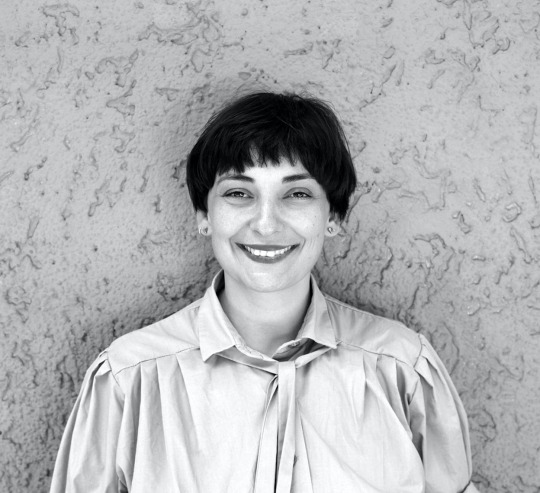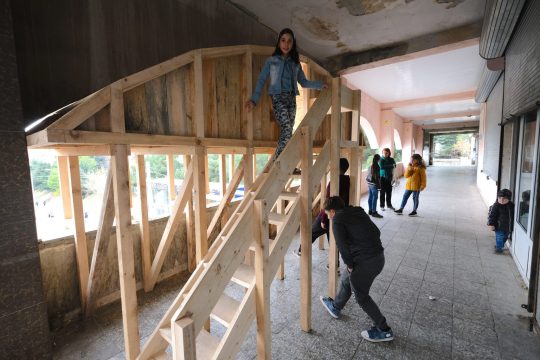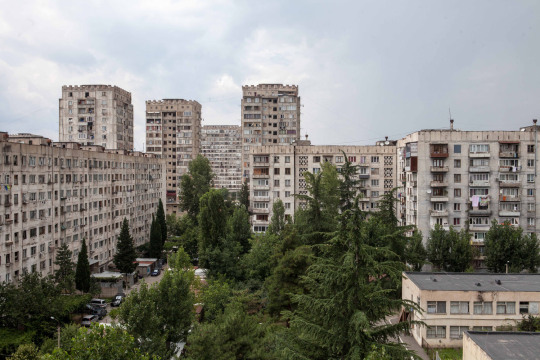#used to be a lot less work oriented when I didn't have events to organise lmao
Text
Because I am so very smart and know I'm in a no-computer kick of writing I have. managed to not pick a thing to write just now when I am very actively looking for a thing to write
Should I have put my big ol' notepad in my bag as well? maybe
Should I probably be focusing on work while I'm, you know, at work and organising events? maybe
but have you considered; wanna make words work
#talkin' malarky#I was gonna work on my list of small prompt suggestions#but no absolutely not. I have done this to myself and have no one to blame#on the other hand tho li'l old lady just walked onto the bus and complimented my bestickered laptop#I mean it started as a ''well you won't be misplacing that''#which is also true. but she did say she liked it so yeah#anyhow. should perhaps do work. get off tumblr while I'm using the library's data pack#maybe open a word doc and just hrrrrrgh words at it#wilder things have happened#ah the days on the bus#used to be a lot less work oriented when I didn't have events to organise lmao#but I haven't had an impromptu nap today so. progress?
1 note
·
View note
Text
Tinatin Gurgenidze: Between Two Cities
Continuing our talks on the Independent Coastal Radio NOR with Tinatin Gurgenidze, an architect and urban researcher from Georgia. She is one of the co-founders of the Tbilisi Architecture Biennial. Listen to new edition of Weltraum.

Explain me more about the Tbilisi architectural biennial?
Tinatin Gurgenidze: Since I've left Georgia, I always wanted to do something there. I started my PhD research about a neighbourhood in Tbilisi and at some point in 2017 spent half a year in Georgia. This is when the idea of making a cultural event in this district came up. With some friends we made this utopian idea of establishing an architectural biennial in 2017. Afterwards we managed to organise the first edition in 2018. The main reason was the lack of cultural activities in Georgia concerning architecture and also a lack of critical discourse. It was important to create a platform to bring different actors together and talk about certain topics. The second important reason was to engage with the city critically and talk about existing problems.

The inaugural Tbilisi Architecture Biennial was based in the suburb of Gldani. Photo is by Tako Robakidze
Do you also involve different communities in this discourse?
TG: The initial idea is to create it for the local audience but as we had less expertise, and we were lacking experiences of creating such events we made it quite international at the beginning. The local audience at first was not so much present, probably because it was the first time, they didn't really understand what we were doing, but it radically grew in the last two editions. Our audience is very different because we make very interdisciplinary activities. For example, in the last edition we had the film screenings where completely other audience attended compared to the symposium. Each activity has different audiences and it's always open to new people depending on what is happening. Participation wise it's quite international but oriented and based on local topics.

Young architects built guerrilla structures into existing buildings, like this pavilion by Maria Kremer. Photo is by Stefan Rusu
What did LINA offered the the biennial?
TG: This was probably the most important things for us, being part of LINA platform gave us so much connections throughout all Europe with different organisations and also so much support. Without LINA we have not gone so far. I feel very grateful for that, and I think we sometimes forget how important it is to come together and share, what LINA is doing. We've got also partners for another project that we have met through LINA.
How is to create such events in a precarious situation of work as a freelance?
TG: I am not completely a freelancer because I work for a local NGO in Berlin which is partnering with biennial and also my colleagues in Georgia they get their part time employment as well. Creative Europe funding allows us to have the salaries, which is a very positive thing. There is so much energy and time that we invested for free, overworking, but slowly with experiences and the results we get it pays back.
Your PhD thesis is based on the (post-) Soviet mass housing settlement of Gldani, a suburb of Tbilisi; What are you researching?
TG: It's a complicated story. When I started my PhD I did my research and stop it because of lack of time as I was involved in the organising the biennial. I have a plan to start again this year. It changed a lot from what I was researching and what I want to research now because I am working on the period of transformation after the break up of the Soviet Union and introduction of the market economy and how this influenced the built environment. I would like to research the typologies of the self-made structures and this transformation that happened in this period and archive the cases. I know the typologies will disappear but I would like to pay attention to this phenomena because this is also the period when self-made architecture was done and it's also an architectural style that needs to be studied.

Soviet mass housing settlement of Gldani, a suburb of Tbilisi. Photo © Tbilisi Architectural Biennial
Some people doesn't consider the self-made as an architectural style. I have to proof why it is it important to document this.
How did neoliberal period influenced on the architecture and society in Georgia?
TG: Extremely. From one radical system we entered to another radical system. This is having a massive influence, specially exploiting all the resources like selling out to foreign investors valleys and forests. The feeling of common ship is completely lost. This process has gone so far that since few years there are movements and protest. Since there is another side there is some hope. The situation is so extreme that people are also loosing their homes in a very brutal way. The banking system is super violent and influences drastically on people's life. The discourse is now opening more and more around the topic of common resources and that forests shouldn't be sold to one owner. People are slowly starting to understand this and these protest start from the region, they didn't started in the big cities, this fact makes it strong as well. It is very important that they reached the centre and are more and more people understand the problematic.
What about the privatisation of water in Georgia?
TG: We worked on this topic during the Venice biennial last year and we will continue to talk about it this year during the Tbilisi biennial. Water in Georgia is one of the most valuable resources as the territory in Georgia has so many different bodies of water - from nature springs to lakes, rivers, glacial, sea. The reality is that not everybody has equal access to the drinking water. Rather that some made water into a commodity and earning money from it, while on the other hand locals might not have the access to drinking water in their homes. It is a paradox how this can happen and a way of modern colonisation that affects environment and ecosystems because t's not really controlled. There is a problem of what kind of contracts are being made and how the natural resources are being sold out.


Exploring the Relationship Between Time and Energy: The Georgian Pavilion at the 2023 Venice Biennale is Curated by the Tbilisi Architecture Biennial Photo © Gigi Shukakidze
It is not possible to sell an entire valley or a river to a private investor, this is something that has to belong to the country and its people.
How do you see architecture in the future?
TG: A lot of rethinking must be done of what is architecture and what it can be in the future. We must really think if we need to build completely new buildings and urbanise so much territory. We must start to radically change not to build new things. It's proven many times that reconstruction is much more eco-friendly and cheaper. How much more can we build? According to the calculations where more people are coming into cities, we shall build more, but how far can we go? If we build more, more people will come therefore we need to find a balance between land, regions and cities, which can't grow endlessly.
Architecture is not an alone standing profession, it's connected with everything around it.
-
Tinatin Gurgenidze lives and works in Berlin. She studied architecture and urban design in Tbilisi and Barcelona. Trained as an architect and urban designer, Tinatin is involved in research and curatorial work regarding critical urban issues. She is one of the co-founders of the Tbilisi Architecture Biennial. Tinatin is also an author of several publications and articles in journals as ‘Architectural review’ and ‘Failed Architecture’. Currently, she is working on her PhD thesis concerning the (post-) Soviet mass housing settlement of Gldani, a suburb of Tbilisi. Tinatin’s work concentrates on a sociological approach towards architecture and urban space. In her work she tries to understand what happened to Gldani in the transition period after Georgia regained its independence in 1991.
Here You can listen to the WELTRAUM interview.

4 notes
·
View notes
Text


meet jude duran, a secretary who lives in the downtown district of ashmore. he's 28, born 06/08, making him a gemini - which make sense, he is pretty opportunistic and adaptable. he's originally from la romana, domincan republic; i wonder if he'll stay in ashmore for long ― jan luis castellanos, bisexual, man + he/him.
content warnings - illness, death, loss of a parent.
full name: jude alejandro duran
nickname/s: none currently
age: twenty-eight
gender: man
pronouns: he/him
sexual orientation: bisexual
birthdate: june 8th, 1995
zodiac: gemini
occupation: secretary
living arrangements: currently lives downtown in a small apartment; travels to the business district for work
medical conditions: none currently known
drug + alcohol use: occasional alcohol consumption, rare marijuana consumption
likes + interests: films, tv, pop culture, music, singing, dancing, going out, going to events, spending time with friends, being complimented, affection, cooking, writing, organising lists
family: father unknown, mother deceased, in contact with older sister - relationship is strained though
additional info + hcs -
jude lived with his mother and older sister happily; they had less than not much at times, but they had each other which was all that mattered.
he was always grateful, always appreciative of everything they had, even if it wasn't a lot. they all tried to pitch in to help, even himself and his sister when they were young.
he never felt sorry for himself; he lived in a beautiful place with a beautiful family, and that made him feel rich.
because of their struggles and their need to be unified, the family was always really close. jude was happy with the arrangement; the support of his family kept him going.
his sister was eight years older than him, technically only a half sister as they had different father's, but jude never saw her as any less of a sister. her father was never in the picture either.
because of their age difference, jude was only ten when his sister finished high school and went off to college; it was the worst day of his life when he found out that his sister was moving so far away for college on a scholarship.
she attended college in oregon - not in ashmore, though she ended up there after education.
while she was away, they called her almost every evening. she was having a blast, getting opportunities she never thought would be possible, happier than ever.
jude wished he could share in the happiness, but unfortunately after a year of his sister being gone, his mother fell ill.
she battled valiantly, cared for by jude primarily, and anyone else they could afford. though he wished for his sister's help, his mother didn't want to ruin her experience or her chance at a better life; they never told her what was going on.
though they were hopeful that she would recover - jude believing that she might, due to the positive attitude she displayed in order to make him feel better - she only grew worse.
when jude was sixteen, his sister working in ashmore after finishing her studies, their mother died.
when his sister returned to ashmore after her service, jude came with her. he worked hard to live a life like his sister's, the kind of life that he knew his mother would be thrilled to know that he had.
jude discontinued high school when he left his hometown, but he's grateful to even have an entry level job in the business district. people constantly talk down to him, but jude actually loves his job.
there are plenty of aspects in which jude's life could improve, but overall, he's happy. he knows that's what his mom would want.
2 notes
·
View notes
Note
Actually starting to become interested in the Révolution française again, and under your influence, I'm getting curious about Robespierre. Any favorite ressources you would recommend (English, French...) to learn about him?
Oh, I cannot but approve this interest of yours anon ;)
I sure haven't read everything yet, but here's a list everyone else in the fandom will surely complete below!
To learn more about the Frev from a more neutral, less Thermidorian oriented point of view I'd advise Jean-Clément Martin's Nouvelle Histoire de la Révolution Française.
To be introduced to Maximilien I think starting with Cécile Obligi's Robespierre : La Probité révoltante would be good. It's very short and it goes to the point, so that you understand the main ideas first.
Then of course the bible best of all, Hervé Leuwers' Robespierre. Honestly you'll get everything that you need from this, it's a brilliant book.
From then reading Jean Clément Martin's Robespierre : La fabrication d'un monstre will give you all the keys you need to understand his black legend.
When you know what this black legend is about you might find Michel Biard and Philippe Bourdin's Robespierre : Portraits croisés interesting, it's actually the first book I have read about him. It's a compilation of the views of several historians on his various progressive political stances (from memory slavery, propriety, education...)
Then reading Robespierre's sister Charlotte's Mémoires (à prendre avec des pincettes pour des raisons évidentes) would be useful to get a full portrait of the private man (spoiler, that man didn't exist), his family, his domestic life etc.
Then you can read some of his speeches such as Discours sur la religion, la République, l'esclavage. His full works are available to purchase in more than twenty volumes from the Sociétés des Études Robespierristes if one day you want to read, well, absolutely everything.
Aside from books and essays I'd advise to join the ARBR (if you're a student it can only be 5 euros a year if I remember correctly) to get their bulletin trimestriel, l'Incorruptible. There are often some nice pieces of writing in there, always put in perspective with the current politics of France. But you can also just browse the website. They also organise many events taking place in Arras or/and over zoom with university professors as guests. They also have their own reading list here.
Then La Société des Études Robespierristes compiles a lot of ressources and we owe them a lot, they have been actively working to preserve Robespierre's works since 1908 and are fighting to give posterity a juster depiction of him. Their boutique is quite the reference. They are Robespierristes like one was during the late 19th, 20th century, but they do an extraordinary work of compilation and diffusion. You can also follow them on twitter.
Then there are so many others works that I haven't read, like Jean-Clément Martin's essay Il était une fois la Révolution, Loris Chavanette's Danton et Robespierre, le choc de la Révolution, Michel Biard and Marisa Linton's Terreur !
Hope this helps citizen! I realise there's nothing in English, and if anyone wants to give us some recommendations from an English-speaking POV (or German and Italian for myself), I'd love to hear about them.
32 notes
·
View notes